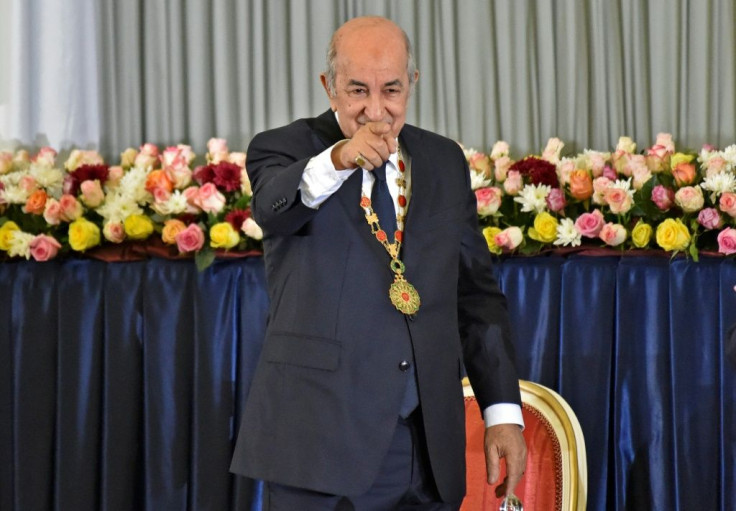As Oil Revenues Drop, Algeria Seeks To Develop Long Ignored Tourism Sector

KEY POINTS
- Algeria gets between 2.5 million-3.5 million annual visitors, but most were Algerians who live abroad
- Oil and gas revenues represent about 20% of Algeria’s GDP
- Oil prices have plunged by more than half since 2014
Algeria is seeking to diversify away from its oil and gas-dominated economy by developing and upgrading its long moribund tourism sector.
As crude oil prices remain depressed, Algerian authorities are desperate to find new revenue streams, including an expansion of tourism. Located near European capitals Madrid, Paris and Rome, Algeria offers immense possibilities for travelers. As such, the government is considering a relaxation of its ornery visa rules to attract more tourists.
Algeria has received between 2.5 million and 3.5 million annual visitors in recent years, but most of them were Algerians who live abroad. (Some 1 million Algerians live in France). In contrast, neighboring Morocco is a tourist haven, with more than 13 million visitors last year. Another neighbor Tunisia now attracts at least 8 million tourists per year, having rebounded from the effects of a wave of Islamist violence from a few years ago.
The Algerian government is reportedly considering an online visa for prospective travelers with an aim of doubling tourist numbers by 2025.
“Despite its stunning rugged beauty and strategic location, the oil-reliant country has historically failed to promote itself as a key tourist destination over the decades, nor has it really wanted to for that matter,” wrote Reem Abdellatif.
Now it has no choice but to seek other sources of income.
Oil and gas revenues represent about 20% of Algeria’s gross domestic product and accounted for 85% of total exports in 2018. However, oil prices have plunged by more than half since 2014, putting great pressure on oil earnings.
In addition, Algeria’s foreign exchange reserves dropped by $10.6 billion over the last nine months to about $62 billion. (At the end of 2017, reserves were as high as $97.3 billion).
“The exchange reserves have melted, and it is believed that they will reach $47 billion by the end of 2020,” said Dalia Ghanem, an Algerian political analyst and resident scholar at the Beirut-based Carnegie Middle East Center. “The timing is paramount because there is a looming economic crisis, and the country is running out of money.”
Ghanem added that “there is an urgent need to find new sources of revenue. [The development of] of shale gas is not an easy [option]. It took the U.S. years to develop and a lot of expertise and technology that Algeria does not have.”
Algeria’s rulers have long ignored developing the country’s infrastructure and gave scant attention to tourism.
Tourists were also likely dissuaded from traveling to Algeria due to its history of political turmoil and Islamist violence, highlighted by a devastating civil war in the 1990s that killed some 200,000 people.
“There was no real political will to invest in tourism,” said Ghanem. “Unfortunately, because of oil and gas, tourism was never developed, and hence there is very limited and poor infrastructure when it comes to [the sector].”
Ghanem noted that Algeria needs to improve its tourism infrastructure, as its hotels are “not up to standards and because of the lack of competition, there is no incentive to improve the quality, nor the price.”
The huge but isolated country finds itself in the midst of rapid political changes.
Peaceful protests last year by youths frustrated by lack of economic opportunities led to the resignation of long-time President Abdelaziz Bouteflika.
Algeria’s new President Abdelmadjid Tebboune, said Isabelle Werenfels, Middle East and Africa senior fellow at the German Institute for International and Security Affairs, “is seeking to bring changes in order to enhance his domestic legitimacy.”
Werenfels also noted that “opening up the country is something many, particularly young Algerians, hope for. Not least, because this means new opportunities for them.”
Algeria’s tourism sector has enormous potential, Werenfels added, but is ill-equipped. “[Algeria] isn’t prepared for large numbers [of visitors],” she said. “I think it is good news that the government doesn’t rush to mass tourism -- which is what it declared it doesn’t want.”
Abdelkader Gouti, an adviser to the Tourism Ministry, said Algeria is preparing to become “the alternative destination for the Mediterranean.” He added: “Algeria cannot afford the luxury of remaining on the sidelines.”
Gouti said Algeria’s tourist strategy will focus on wealthy visitors, primarily Europeans, but also tourists from China, Canada and the U.S.
He also cited plans to enlarge the port in the capital, Algiers to receive cruise ships, and to develop at least one resort on its long Mediterranean coastline.
“We are one of the safest countries in the world,” Gouti assured.
Anthony Skinner, a director at Verisk Maplecroft, a British-based risk consultancy, said that improving the visa regime represents a “positive step” for Algeria. But he cautioned that “authorities will also have to engage in a robust PR campaign to challenge rival, long-established Mediterranean destinations.”
The British Backpacker Society praised Algeria as a potentially huge destination for travelers seeking unspoiled terrain.
"Algeria's tourism industry is not only blessed by world-class desert scenery, delightfully hospitable people and spectacular ancient ruins, but it is also blessed by its geographical proximity to keen travelers [in Europe]," the organization said.
© Copyright IBTimes 2025. All rights reserved.





















